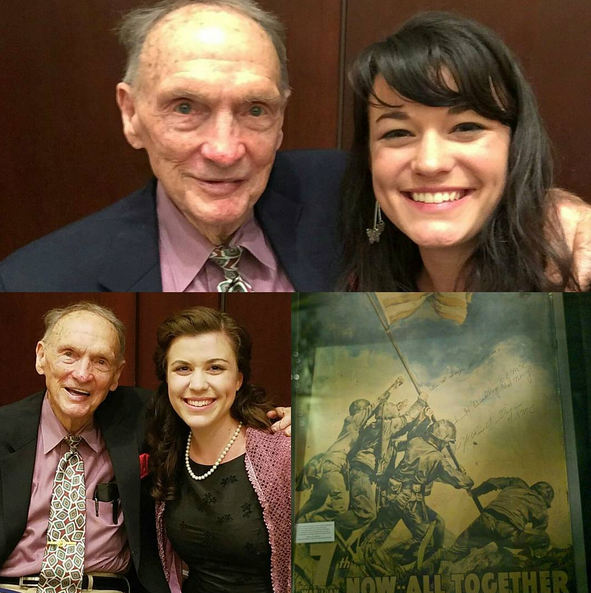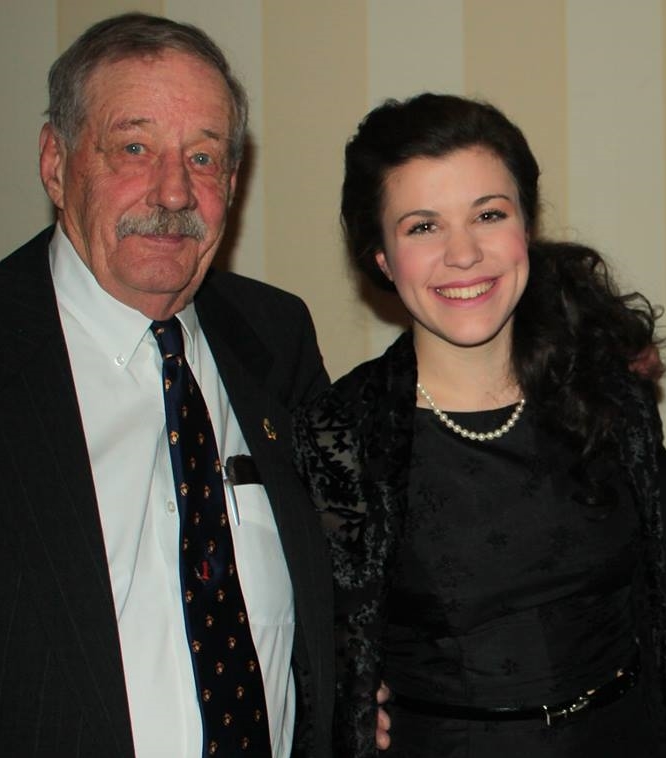Toccoa Currahee Military Weekend
/Toccoa, Toccoa... one of the sweetest and most darling places in America.
The last several months have been pretty busy with life in general. After looking at the blog and realizing it had been nearly 2 months since the last post, we figured it was time to do some catch-up work. So, instead of going too far back, I'll just start with Currahee Military Weekend.
In the beginning of October, the town of Toccoa, Georgia hosts their annual Currahee Military Weekend in honor of the men who trained at Camp Toccoa in WWII. These men were United States Paratroopers. One paratrooper we talked to once said, "We were the baddest of the bad, and the biggest troublemakers." That is for sure. It seems that most of the stories they tell end up with fistfights or an attempt to capture a town single handedly (encouraged not a little by the belief that one paratrooper was more than equal to at least half a dozen regular Army men). But paratroopers are also known for their fierce camaraderie. You may be a stranger, but if you wear the jump wings, you are family, and they'll stick to you through thick or thin. This bond is something almost unexplainable to an outsider.
Part of the unique history of Toccoa is Currahee Mountain. It was originally used as a significant element of the paratrooper's training (running up and down in full gear), but since then has grown in legend, especially after it was immortalized in the TV mini-series "Band of Brothers." Since we first visited Toccoa in 2014, we have tried to make it a point of running the mountain each time. Now, I've run several half-marathons over the years and found them to be in varying forms of difficulty. But nothing compares to Currahee. The famous quote, "3 miles up, 3 miles down," pretty much summarizes the intensity of the mountain. It is no cakewalk. However, putting all difficulty aside, it has to be one of the most inspiring places I've ever run. To know that every step you take is in the exact footsteps of the paratroopers. The paratroopers who dropped into Normandy in the early hours of June 6, 1944. The paratroopers who earned their name bravely defending Bastogne. And the same paratroopers who eventually stormed Hitler's elite getaway -the Eagles Nest. It is a pretty awe-inspiring thought, and definitely the only thing that gets me to make it to the top of the mountain and back.
Singing old love songs with sweet paratroopers and listening to riotous stories of hospital escapades is pretty much the best. Besides, who doesn't love a paratrooper?!
Over the course of the weekend, veterans who trained at Camp Toccoa in WWII come back (some for the first time since they trained in 1943!), and there are book signings, chatting, music, parades, and everything possible to make the time fabulous. Toccoa is a small town, but it has a heart as big as Texas. We knew after the first day there that we had quite lost our hearts to this darling place.
One of the best parts is reconnecting with old friends. And one of the best surprises for us was in the form of these two WW2 vet cousins. We had met them the first year we attended, and had just the best time with them, chatting about Gene Autry and Tank Destroyers (a great combination, don't you think?).
L-R: Liberty, Garnett, Jubilee, DeWitt, and Faith at Toccoa's Currahee Military Weekend
Garnett (left) was on a Tank Destroyer and had his fair share of experiences over in Europe. His descriptions of tank battles and coming upon German concentration camps ("you could smell them miles and miles away") were remarkable. Interestingly, one of the men in his crew had been born and raised in Germany before coming to America. One day they were going through a small German town and this buddy pointed out, "This is the town where I grew up. That window is where my Aunt lives."
His cousin DeWitt (right) was with the Engineers in Italy. However before going overseas, when he was 16, he had hitchhiked 300 miles from Demorest to Brunswick, Georgia to work with his uncle at the shipyard there. They are quite the pair of cousins!
On Sunday morning, a memorial service is held at the Camp Toccoa Currahee Memorial. It is a beautiful ceremony complete with honor guards and taps. Following this comes a highlight of the week, breakfast at the local diner with the veterans. One of the lovely veterans we met was paratrooper Bill Galbraith. Mr. Galbraith jumped with the 101st into Normandy on D-Day, and then again into Holland for Operation Market Garden. On September the 18th, 1944, the day after landing in Holland, he was severely wounded and shipped off for treatment. His recovery ended up being a long, tedious, and painful process. To combat the pain, he concentrated on memorizing poetry, good hearty poetry though, the likes of Robert Service and others similar. Well, as Robert Service is a favorite in our house, we talked at great length about this, Mr. Galbraith reciting numerous poems perfectly from memory. It was absolutely fabulous. There are more stories from Mr. Galbraith, but that's for another time.
Currahee Military Weekend 2016 left us with many wonderful memories. We listened to stories that made us cry, as well as stories that made us hold our sides with laughter. We sang old love songs with 90 year-old paratroopers who are still young at heart; and we talked about their war-time buddies -some who came home, and a few who didn't. Last but not least, we remembered the 6,000 soldiers who trained at Camp Toccoa and forever became "Toccoa Men."




















































